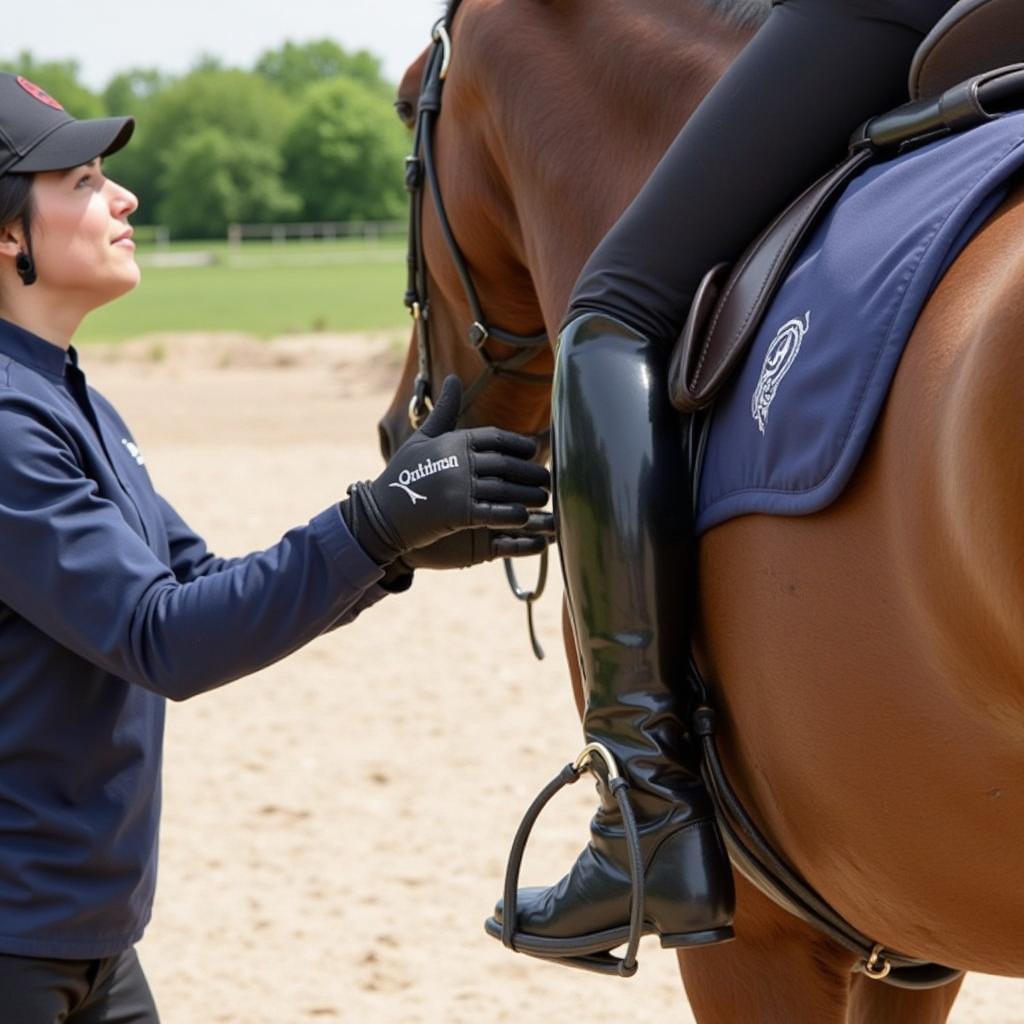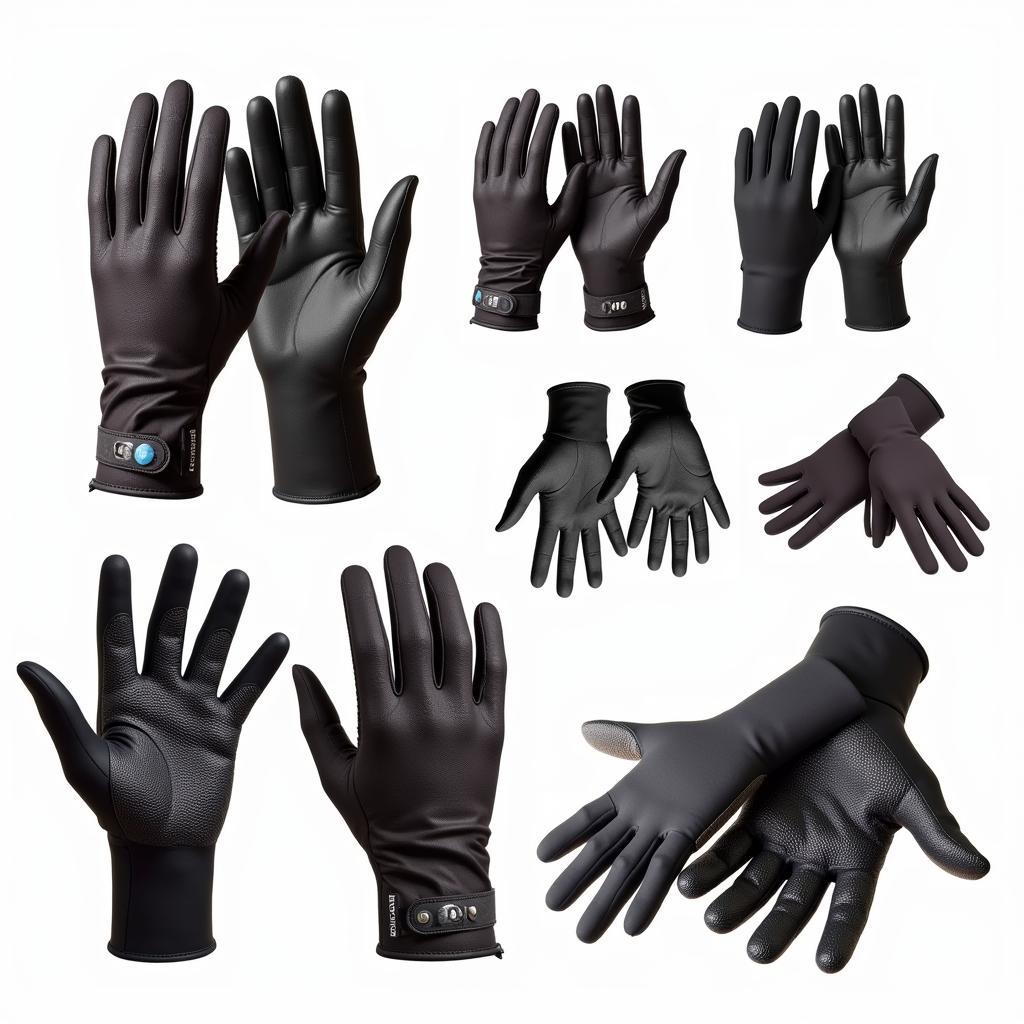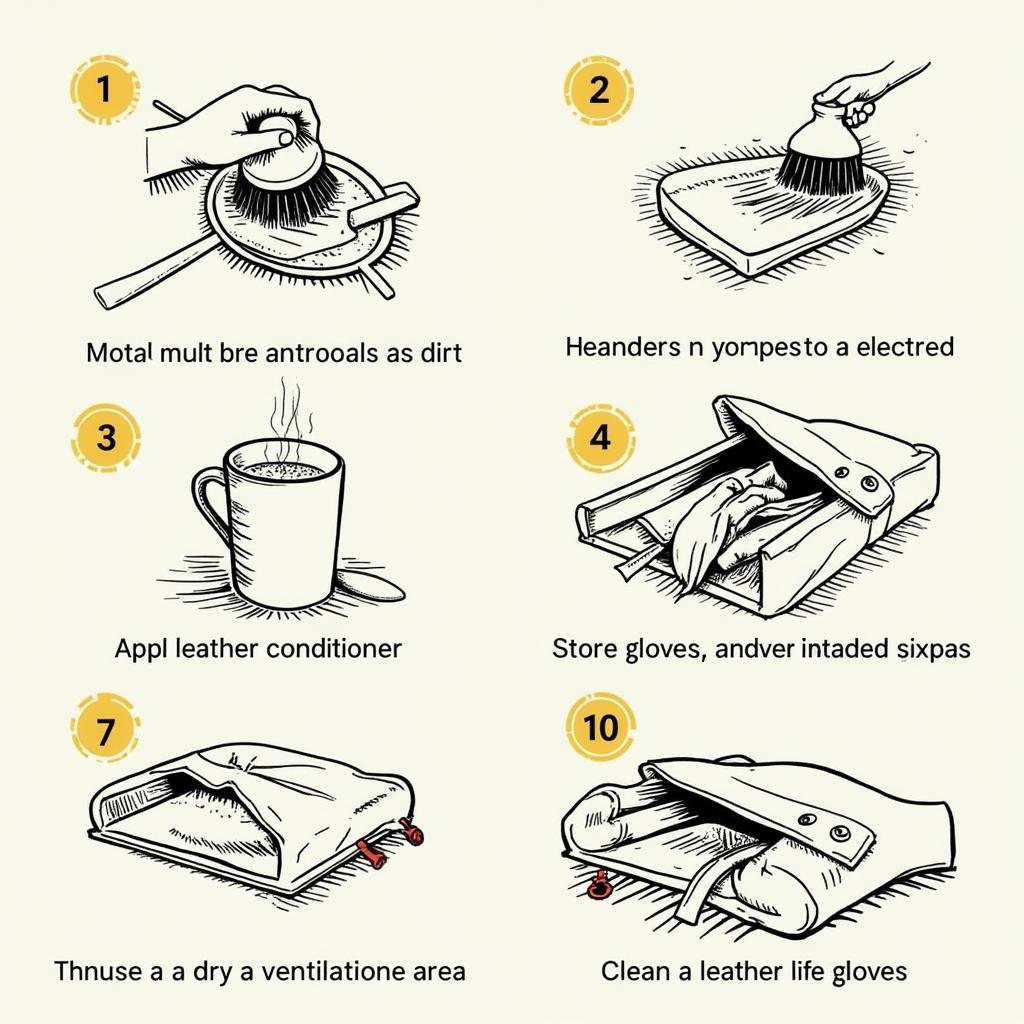Horse Gloves are an essential piece of equipment for any rider, offering a multitude of benefits for both horse and rider. Whether you’re a seasoned equestrian or just starting out, understanding the different types of horse gloves, their uses, and how to choose the right pair can significantly enhance your riding experience.
 Rider wearing horse gloves during training
Rider wearing horse gloves during training
Riding gloves provide a better grip on the reins, preventing slippage and ensuring precise communication with your horse. This improved control is particularly important in challenging situations or when working with young or spirited horses. Beyond grip, gloves act as a protective barrier against blisters, calluses, and rope burns, keeping your hands comfortable during long rides or intensive training sessions. They also offer protection from the elements, shielding your hands from sun, wind, and cold. For riders with sensitive skin, gloves can minimize irritation from contact with horsehair, leather, or other materials.
Choosing the Right Horse Gloves: A Comprehensive Guide
Choosing the right horse gloves depends on various factors, including the riding discipline, weather conditions, and personal preferences. Different disciplines often require specific glove features. For example, dressage riders may prefer thin, close-fitting gloves for maximum feel and dexterity, while jumpers might opt for gloves with reinforced palms and fingers for added protection.
Understanding Glove Materials and Their Benefits
Horse gloves are made from a variety of materials, each offering unique properties. Leather gloves are a classic choice, known for their durability, breathability, and elegant appearance. Synthetic materials like spandex and nylon offer flexibility, moisture-wicking capabilities, and are often more affordable. german horses for sale in germany Innovative materials like microfiber and bamboo provide a combination of comfort, durability, and eco-friendliness.
 Different types of horse riding gloves
Different types of horse riding gloves
Finding the Perfect Fit: Size and Comfort
Proper fit is crucial for both comfort and performance. Gloves that are too tight can restrict movement and cause discomfort, while gloves that are too loose can compromise grip and control. Measure your hand circumference and consult size charts to determine the correct size. Consider the season and weather conditions when choosing the thickness and insulation of your gloves. Summer riding gloves are typically lightweight and breathable, while winter gloves offer insulation and protection from the cold.
Caring for Your Horse Gloves: Tips for Longevity
Proper care can extend the lifespan of your horse gloves. Always follow the manufacturer’s care instructions. Leather gloves may require occasional conditioning to maintain their suppleness and prevent cracking. Synthetic gloves can typically be machine washed, but air drying is generally recommended to prevent shrinkage or damage. Storing your gloves in a cool, dry place away from direct sunlight will help preserve their quality.
Why are horse gloves important for safety?
Horse gloves are essential for safety as they provide a secure grip, reducing the risk of rein slippage and improving control, especially in challenging situations. They also protect hands from injuries like blisters, rope burns, and impacts, ensuring a safer and more comfortable ride.
 Cleaning and storing horse gloves
Cleaning and storing horse gloves
Conclusion: Invest in the Best for Your Ride
Investing in a good pair of horse gloves is an investment in your comfort, safety, and overall riding experience. By understanding the different types of gloves available and considering your individual needs, you can choose the perfect pair to enhance your performance and protect your hands. Horse gloves are an indispensable part of any rider’s gear, ensuring a comfortable, safe, and enjoyable ride every time. Remember to choose gloves that fit well, offer adequate protection, and are appropriate for your riding discipline and the weather conditions.
FAQ
- What are the best horse gloves for beginners? Synthetic gloves are often a good choice for beginners due to their affordability and ease of care.
- Can I use regular gloves for riding? While you can, specialized horse riding gloves offer a better grip, protection, and overall performance.
- How often should I replace my horse gloves? Replace your gloves when they show signs of wear and tear, such as holes, thinning, or significant loss of grip.
- What are the best horse gloves for winter riding? Insulated, waterproof gloves are essential for winter riding to keep your hands warm and dry.
- Are there horse gloves for touchscreen devices? Yes, many brands now offer gloves with touchscreen-compatible fingertips.
- What are the best gloves for showing? Leather gloves are often preferred for showing due to their classic and elegant appearance.
- How do I clean my leather riding gloves? Use a specialized leather cleaner and conditioner to maintain the suppleness and durability of your gloves.
Need help? Contact us at Phone Number: 0772127271, Email: [email protected] Or visit us at: QGM2+WX2, Vị Trung, Vị Thuỷ, Hậu Giang, Việt Nam. We have a 24/7 customer service team.